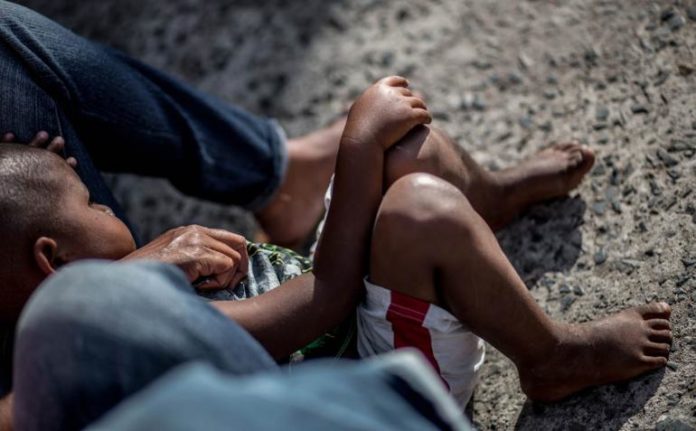COVID-19-associated deaths have left nearly 150 000 children in South Africa as orphans, according to the latest data modelling from Imperial College London.
This is part of the Global Reference Group for Children Affected by COVID-19: Joint Estimates and Action.
The number of Covid-19 orphans in South Africa rises to 207 400 when including children who have lost their primary or secondary caregiver, such as a grandparent.
The tragic figures reiterate the importance of a holistic and child-centred response to the broad-ranging impact of COVID-19 on childhood, particularly to protect and support children who have been left without one or both parents, or another primary or secondary caregiver.
“Children’s lives have been devastated by the pandemic in so many ways and for those who have lost parents or caregivers the deep scars will last forever,” said Muriel Mafico, UNICEF South Africa, Deputy Representative.
“But with love and care, access to social protection, education and opportunities for growth and development, these children can recover, thrive and realize their full potential,” added Mafico.
The loss of parental support and loved ones during childhood can have a long-lasting impact on mental and physical health. These children are more likely to experience violence and abuse and be neglected and exploited.
“A nurturing, protective and stable family environment at home is vital for positive childhood experiences, yet for orphaned children, this is too often a distant dream,” said Mafico.
Efforts to scale up and strengthen the capacity of family-based care and social protection systems are critical to enhance family resilience and help to prevent any recourse to institutional care.
Read more: Africa’s children under threat from the climate crisis
UNICEF South Africa is working with partners to protect every child’s right to live and grow up in an environment that supports their physical, psychological, social and emotional development. This includes through:
- Scaling up access to interventions such as Safe Parks that provide a protective and caring environment in which children are nurtured by professionals and caregivers, where they can play, and receive learning support, counselling and health services.
- Engaging caregivers and households in early childhood development, from learning through play to positive parenting techniques, including building knowledge and skills about how to best nurture children.
- Building the capacity of teachers to best support the psycho-social needs of the most vulnerable children in the school environment and turn ensure school retention.
- Building the capacity of staff in primary health care facilities and community health workers to provide integrated services to children that best protect their mental and physical health.
- Increasing uptake of the Child Support Grant to ensure that the most vulnerable households receive help to alleviate some of the stresses of everyday life, whilst closing the exclusion rate of 2.2 million eligible children.
- Providing the most vulnerable youth with access to skills-building opportunities and work and entrepreneurial mentorship and opportunities.
- The tragic and increasing number of COVID-19 orphans is also a reminder that COVID-19 is not over, and the virus has led to the deaths of more than 1 million people globally in 2022 alone, according to WHO figures.
Vaccination continues to be the most effective way to prevent serious illness or death. In June this year, The Lancet estimated that 19.8 million lives were saved during the first year of COVID-19 vaccinations, from December 2020 to December 2021.
UNICEF South Africa continues its COVID-19 response with the National and Provincial Departments of Health to help build further momentum towards the 70% coverage target of the adult population by the end of 2022.
This includes strengthening vaccine cold chain management and systems, communication and community engagement work to bolster COVID-19 vaccine coverage, and routine childhood immunization.
UNICEF South Africa is extremely grateful for the support received towards the COVID-19 vaccine response from donors including the Government of Germany’s Federal Foreign Office, the Government of Japan and the Cotton On Foundation.
Source: Unicef South Africa
Nearly 150,000 children in South Africa have been orphaned due to COVID-19 & they are more likely to experience violence & abuse & be neglected & exploited. This is a tragic reminder that the pandemic isn't over & interventions are still crucial. https://t.co/AlJUDKjh2U
— UNICEF South Africa (@UNICEF_SA) September 7, 2022


